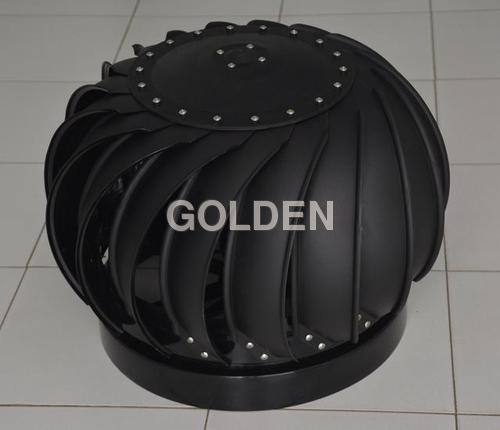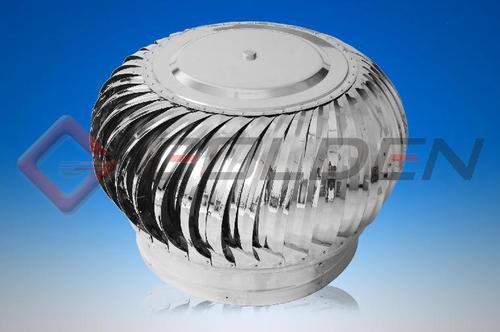Product Description
A polypropylene ventilator typically refers to a ventilation system or equipment that incorporates polypropylene materials in its construction. Polypropylene is a type of thermoplastic polymer that is known for its chemical resistance, durability, and lightweight nature. It is often used in various industrial and laboratory applications, including those that require ventilation and air handling.
Polypropylene ventilators are commonly used in environments where there is a need to exhaust or supply air while maintaining a high level of chemical resistance and corrosion resistance. These environments can include laboratories, chemical processing facilities, pharmaceutical manufacturing, and other industries where exposure to corrosive chemicals and gases is a concern.
The use of polypropylene in ventilator construction provides several benefits:
1. Chemical Resistance: Polypropylene is highly resistant to a wide range of chemicals, making it suitable for environments where corrosive substances are present.
2. Corrosion Resistance: Unlike metal ventilators, polypropylene ventilators are not susceptible to corrosion, ensuring a longer service life in harsh environments.
3. Lightweight: Polypropylene is a lightweight material, making the ventilators easier to handle and install.
4. Easy Maintenance: Polypropylene is easy to clean and maintain, which is important in applications where hygiene and cleanliness are crucial.
5. UV Resistance: Polypropylene has some degree of resistance to ultraviolet (UV) radiation, which can be beneficial in outdoor applications.
Polypropylene ventilators can come in various forms, including exhaust fans, ductwork, fume hoods, and more. These systems are designed to safely and efficiently remove or supply air to maintain a controlled environment in settings where chemical compatibility and durability are essential.
It's important to consult with ventilation system manufacturers or experts to select the appropriate polypropylene ventilator for your specific needs, as different environments may require different configurations and specifications.
Polypropylene Ventilator Specifications:
1. Model: TWISTER-400 (Polypropylene/Plastic)
2. Turbine Diameter: 510mm
3. Neck/Throat Diameter: 400mm
4. No. of Vanes (Blades): 18 Vanes
5. Height: 375mm
6. Base Ring MOC (Mounting Ring): Polypropylene; Thickness 3mm
7. Top Plate MOC: PP/Nylon; Thickness 3.5mm
8. Vanes MOC: Polypropylene; Thickness 2mm
9. Rotation: Twin Sealed 6200ZZ & 6201ZZ bearings and self lubricating bush of Polyamide 66 resin to ensure frictionless rotation even at lowest wind velocity
10. Center Shaft: Stainless Steel
11. Inner Arms: Polypropylene
12. Outer Arms: Polypropylene
13. Nett. Weight: 2.5 Kgs (Approx.)
14. Gross Weight: 4.5 Kgs (Approx.)
Polypropylene Ventilator FAQ:
Q. What is a polypropylene ventilator?
Ans: A polypropylene ventilator is a ventilation system or equipment designed for use in environments where chemical resistance and corrosion resistance are essential. It is constructed using polypropylene, a thermoplastic polymer known for its durability and chemical resistance.
Q. Where are polypropylene ventilators commonly used?
Ans: Polypropylene ventilators are commonly used in laboratories, chemical processing facilities, pharmaceutical manufacturing, and other industrial settings where there is exposure to corrosive chemicals and gases. They are also suitable for environments requiring high cleanliness standards.
Q. What are the advantages of using polypropylene ventilators?
Ans: The key advantages of using polypropylene ventilators include:
a. Chemical resistance: Polypropylene is highly resistant to a wide range of chemicals.
b. Corrosion resistance: It is not susceptible to corrosion, ensuring a longer service life.
c. Lightweight: Polypropylene is easy to handle and install due to its lightweight nature.
d. Easy maintenance: It is easy to clean and maintain.
e. UV resistance: It offers some resistance to UV radiation, making it suitable for outdoor applications.
Q. What types of polypropylene ventilators are available?
Ans: Polypropylene ventilators come in various forms, such as exhaust fans, ductwork, fume hoods, and custom ventilation solutions tailored to specific needs.
Q. How do polypropylene ventilators differ from traditional metal ventilators?
Ans: Polypropylene ventilators offer superior chemical and corrosion resistance compared to traditional metal ventilators, which can corrode in the presence of corrosive chemicals. They are also lightweight and easier to maintain.
Q. What factors should I consider when selecting a polypropylene ventilator?
Ans: When choosing a polypropylene ventilator, consider factors like the specific chemicals present in your environment, airflow requirements, installation requirements, and any regulatory or safety standards that must be met.
Q. Can polypropylene ventilators be used in outdoor applications?
Ans: Polypropylene ventilators have some degree of UV resistance, making them suitable for outdoor applications. However, the specific degree of UV resistance may vary depending on the formulation of the polypropylene material used.
Q. Are there maintenance requirements for polypropylene ventilators?
Ans: Polypropylene ventilators are relatively easy to maintain. Regular cleaning and inspections are typically required to ensure they continue to function effectively. Maintenance procedures may vary based on the specific type of ventilator and the environment in which it is used.
Q. Can polypropylene ventilators be customized for specific applications?
Ans: Yes, polypropylene ventilators can be customized to meet specific application requirements. Manufacturers can design and fabricate polypropylene ventilation systems tailored to the needs of individual industries and environments.
Q. How do I choose a reliable manufacturer or supplier for polypropylene ventilators?
Ans: When selecting a manufacturer or supplier, consider their reputation, experience in the industry, the quality of their products, and their ability to provide customized solutions. It's essential to work with experts who understand the specific needs of your application.











 English
English Spanish
Spanish French
French German
German Italian
Italian Chinese (Simplified)
Chinese (Simplified) Japanese
Japanese Korean
Korean Arabic
Arabic Portuguese
Portuguese